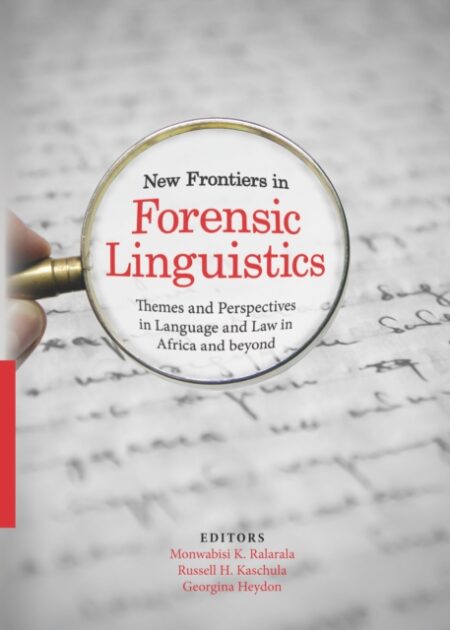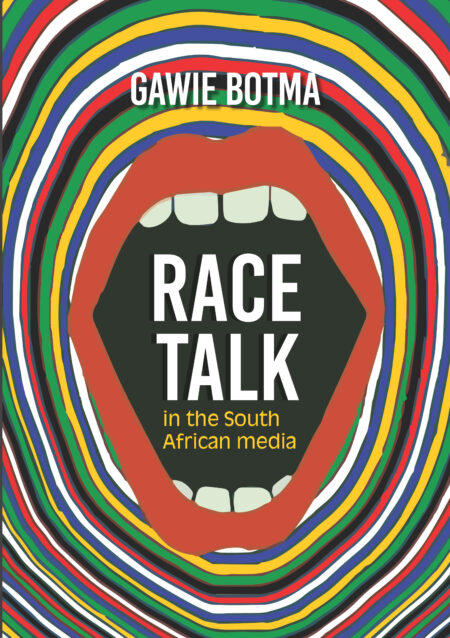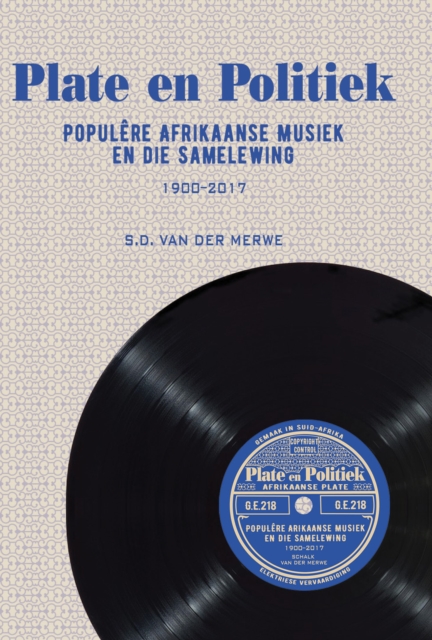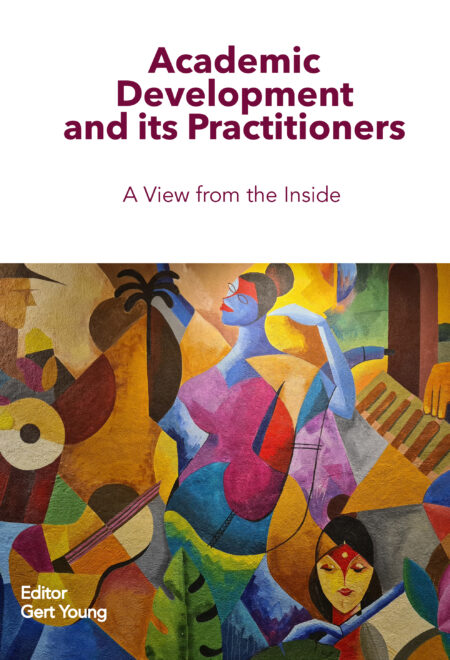-

Masithethisane ngempilo ngesiXhosa
0R280,00Masithethisane ngeMpilo ngesiXhosa
Let’s chat about health / Kom ons praat oor gesondheid
offers a comprehensive trilingual (isiXhosa, English, Afrikaans) response. The authors aimed to transcend language and cultural barriers, to contribute to equity by respecting the right of amaXhosa citizens of Mzantsi Afrika to be health treated in their mother tongue for greater comfort, and to facilitate treatment and healing among amaXhosa patients who may now articulate their health concern, at least in part, in their language of choice.
The targeted reader will find a wealth of medical and health-specific language which was purposefully mined and created to suit the specific needs of medical and health professionals working in largely monolingual isiXhosa spaces.
Print: View Print Version
-

Multilingualism in Ancient Contexts
0R440,00Multilingualism remains a thorny issue in many contexts, be it cultural, political, or educational. Debates and discourses on this issue in contexts of diversity (particularly in multicultural societies, but also in immigration situations) are often conducted with present-day communicational and educational needs in mind, or with political and identity agendas. This is nothing new. There are a vast number of witnesses from the ancient West-Asian and Mediterranean world attesting to the same debates in long past societies. Could an investigation into the linguistic landscapes of ancient societies shed any light on our present-day debates and discourses? This volume suggests that this is indeed the case. In fourteen chapters, written and visual sources of the ancient world are investigated and explored by scholars, specialising in those fields of study, to engage in an interdisciplinary discourse with modern-day debates about multilingualism. A final chapter by an expert in language in education responds critically to the contributions in the book to open avenues for further interdisciplinary engagement together with contemporary linguists and educationists on the matter of multilingualism.E
eBook: View eBook Version
-

Multilingualism in Ancient Contexts
0R350,00Multilingualism remains a thorny issue in many contexts, be it cultural, political, or educational. Debates and discourses on this issue in contexts of diversity (particularly in multicultural societies, but also in immigration situations) are often conducted with present-day communicational and educational needs in mind, or with political and identity agendas. This is nothing new. There are a vast number of witnesses from the ancient West-Asian and Mediterranean world attesting to the same debates in long past societies. Could an investigation into the linguistic landscapes of ancient societies shed any light on our present-day debates and discourses? This volume suggests that this is indeed the case. In fourteen chapters, written and visual sources of the ancient world are investigated and explored by scholars, specialising in those fields of study, to engage in an interdisciplinary discourse with modern-day debates about multilingualism. A final chapter – by an expert in language in education – responds critically to the contributions in the book to open avenues for further interdisciplinary engagement – together with contemporary linguists and educationists – on the matter of multilingualism.
Print: View Print Version
-

New Frontiers in Forensic Linguistics
0R340,00The field of forensic linguistics is a niche area that has not enjoyed much participation from the African continent. The theme of language and the law in this book is one that straddles two important aspects of the legal history of South Africa in particular, and how it has impacted on the country’s legal and education systems. The declaration, by the United Nations, of 2019 as ‘The International Year of Indigenous Languages’ isopportune, not only for the launch of this book, but for what its research content tells us of the strides taken in ensuring access to justice for all citizens of the world in a language they understand. The contributions by authors in this book tell the story of many African citizens, and those hailing from beyond our borders, who straddle the challenges of linguistic and legal pluralism in courtrooms across their respective countries. It is our hope that the contributions made in this book will assist in ensuring human rights become a reality for global citizens where indigenous voices have not been heard; and that these citizens will be free to give their testimonies in a language of their choice, and that theymay be heard and understood.
Print: View Print Version
-

Oral and Manuscript Culture in the Bible
0R290,00Drawing on a wide range of scholarship dealing with the properties and function of the materialities of the oral and scribal arts, as well as oral-scribal interfaces, the author unfolds before our eyes and makes manifest to our ears a world of communications in which there are no original texts, let alone original speech, where manuscripts are written to be remembered and read out aloud, where scribal products exhibit both a metonymic and a polyvalent quality.
-

Pondering Life Issues / Gedagtegange
0R240,00Over the past seven years, the author has written several articles for the media often on request. This volume comprises the most important of these articles. The first 50 articles (Part 1) appear in English and the last 39 (Deel 2) in Afrikaans. The footnotes indicate who published the specific article and when. The latter is important because it puts each article in context. Sometimes the content in this volume differs slightly from that which has appeared in the media. Some of the articles have also been published by other than the indicated media platform / daily newspaper, but they are not mentioned here. There are some themes that overlap in English and Afrikaans but are not direct translations of each other. More than one article has been written on certain themes and some articles were co_authored with colleagues as indicated in the footnotes.
-

Race Talk in the South African Media
0R265,00This book makes a very significant, timely and relevant contribution to a very topical subject of immense local as well as global interest. Through tracing the evolution of media discourse about race and racism, which the author prefers to call Orace talkO, the writer prised open a window to a panoramic, variegated and yet nuanced perspective of the perennial South African race question etched across the vistas of time and memory since Jan Van Riebeeck set up the first European settlement as a refreshment station for the Dutch East India Company, at the Cape of Good Hope in 1652 up to the time of writing this book. It lends a fresh lens through which to re-read South African society, not only to a studious scholar of media history but also to anybody interested in the general history of South Africa.
– Dr Zvenyika Mugari, WITS
This book is based on meticulous archival searching, presented in a new, fresh and highly engaging way. This is a book based on evidentiary-led scholarly principles that has lucidity as a goal. Unlike so many scholarly works which are turgid and very difficult to read because they are written in restricted codes meant only for other academics, this manuscript is wonderfully lucid, accessible and a pleasure to read. The prime readership will be academics but its lucidity makes it appealing beyond a purely academic readership, hopefully reaching media professionals and students also and influencing debates on race policy. This is how academic books, in fact, should be written.
– Prof Keyan Tomaselli, University of Johannesburg
The author has embarked on a very difficult and complex task of understanding the race construct in the South African media context. This is a highly contested and contentious space in South Africa and it is particularly arduous for a Owhite, middle-class, middle-aged, Afrikaans maleO to navigate this space. The author has however eloquently managed to pilot this fine line of controversy. He offers a balanced view of the belligerent debate without treading insensitively on the toes of protagonists and at the same time challenges prevailing views.
– Andr Rose, National Cancer Institute
Print: View Print Version
-

Race Talk in the South African Media
0R330,00EThis book makes a very significant, timely and relevant contribution to a very topical subject of immense local as well as global interest. Through tracing the evolution of media discourse about race and racism, which the author prefers to call Orace talkO, the writer prised open a window to a panoramic, variegated and yet nuanced perspective of the perennial South African race question etched across the vistas of time and memory since Jan Van Riebeeck set up the first European settlement as a refreshment station for the Dutch East India Company, at the Cape of Good Hope in 1652 up to the time of writing this book. It lends a fresh lens through which to re-read South African society, not only to a studious scholar of media history but also to anybody interested in the general history of South Africa.
– Dr Zvenyika Mugari, WITS
This book is based on meticulous archival searching, presented in a new, fresh and highly engaging way. This is a book based on evidentiary-led scholarly principles that has lucidity as a goal. Unlike so many scholarly works which are turgid and very difficult to read because they are written in restricted codes meant only for other academics, this manuscript is wonderfully lucid, accessible and a pleasure to read. The prime readership will be academics but its lucidity makes it appealing beyond a purely academic readership, hopefully reaching media professionals and students also and influencing debates on race policy. This is how academic books, in fact, should be written.
– Prof Keyan Tomaselli, University of Johannesburg
The author has embarked on a very difficult and complex task of understanding the race construct in the South African media context. This is a highly contested and contentious space in South Africa and it is particularly arduous for a Owhite, middle-class, middle-aged, Afrikaans maleO to navigate this space. The author has however eloquently managed to pilot this fine line of controversy. He offers a balanced view of the belligerent debate without treading insensitively on the toes of protagonists and at the same time challenges prevailing views.
– Andr Rose, National Cancer Institute
eBook: View eBook Version
-

Speaking to Good Effect
0R240,00Speaking to Good Effect introduces students to the ancient and ubiquitous art of rhetoric. Whenever we try to achieve something with words as our tools, we become rhetoricians. Whenever we respond positively or negatively to someone elseOs words, we become rhetorical critics. It is, therefore, not surprising that the art of rhetoric has been studied and taught for more than twenty?four centuries.
-

Taalkundige essays
0R295,00?Hierdie bundel bevat oorspronklike navorsing van ‘n baie hoa gehalte. In elkeen van die agt hoofstukke kom daar ‘n besondere bydrae na vore.? – Prof. Christo van Rensburg, Noordwes-Universiteit
?Hierdie werk is ‘n kombinasie van oorspronklike (nuwe) navorsing, die herbewerking van vroear gepubliseerde werk, asook die verwerking van lesings en referate. Die bydraes in die bundel dra by om onontginde terreine te ondersoek en ander te verfyn in die lig van nuwe insigte.? – Prof. Wannie Carstens, Noordwes-Universiteit
?Die bydraes bied ‘n nuwe perspektief op relevante aspekte van Afrikaans. Dit is oorspronklike navorsing en waardevolle leesstof vir nagraadse studente en veral ook vir kundiges in die betrokke vakgebied.? – Prof. Rufus H. Gouws, Universiteit Stellenbosch -

The Semiotics of New Spaces
0R300,00In South Africa, the township or sub-economic state housing development has achieved a very significant position as a site for sociolinguistic research. The Semiotics of New Spaces ? Languaging and Literacy Practices in one South African Township looks at the ways in which people are responding, through their semiotic practices, to the intense socio-historical changes taking place in post?apartheid South Africa. The study is set against the backdrop of Wesbank ? one of the first racially mixed housing developments in the Western Cape. The result is a range of related topics, such as how cross-cultural and crosslinguistic families influence the language practices of their younger members; the impact of translingual friendships on language practices and attitudes; the ways in which older people use their existing literacies to negotiate the multilingual realities of the township and aspects such as identity, voice and agency as markers of a developing
participatory citizenship.eBook: View eBook Version
-

The Semiotics of New Spaces
0R0,00In South Africa, the township or sub-economic state housing development has achieved a very significant position as a site for sociolinguistic research. The Semiotics of New Spaces – Languaging and Literacy Practices in one South African Township looks at the ways in which people are responding, through their semiotic practices, to the intense socio-historical changes taking place in post’apartheid South Africa. The study is set against the backdrop of Wesbank – one of the first racially mixed housing developments in the Western Cape. The result is a range of related topics, such as how cross-cultural and cross-linguistic families influence the language practices of their younger members; the impact of translingual friendships on language practices and attitudes; the ways in which older people use their existing literacies to negotiate the multilingual realities of the township and aspects such as identity, voice and agency as markers of a developing participatory citizenship.
Print: View Print Version


